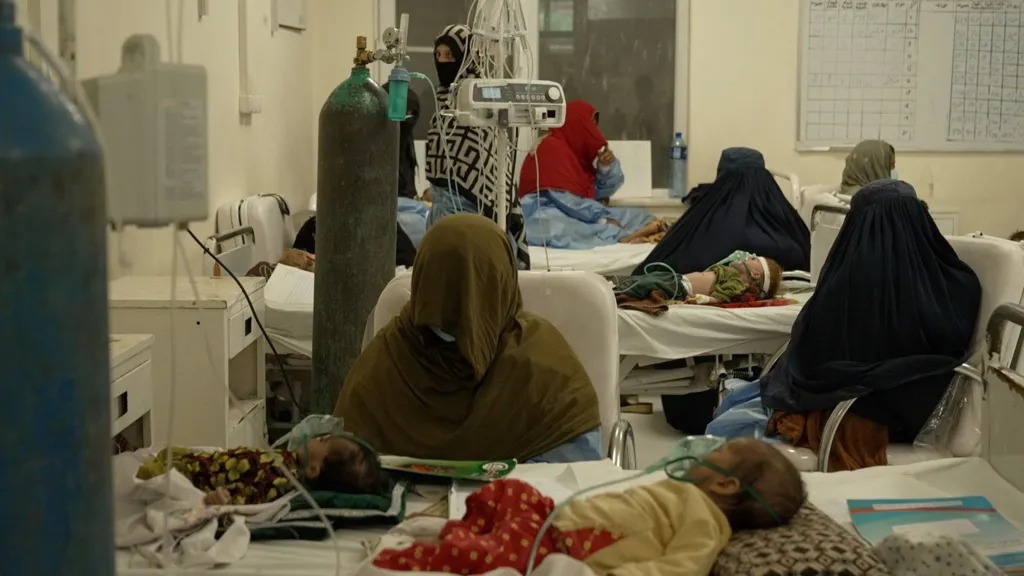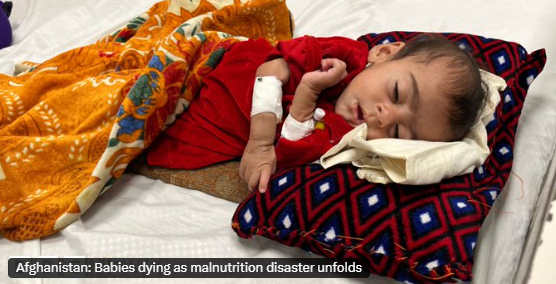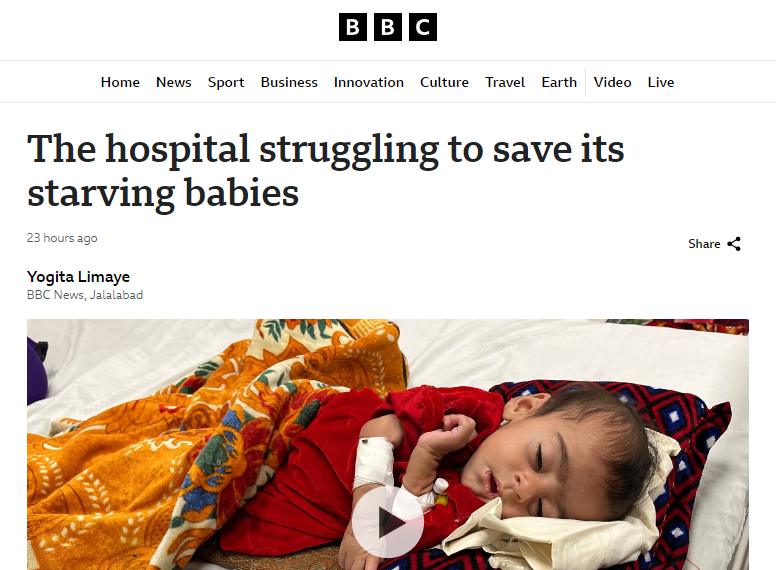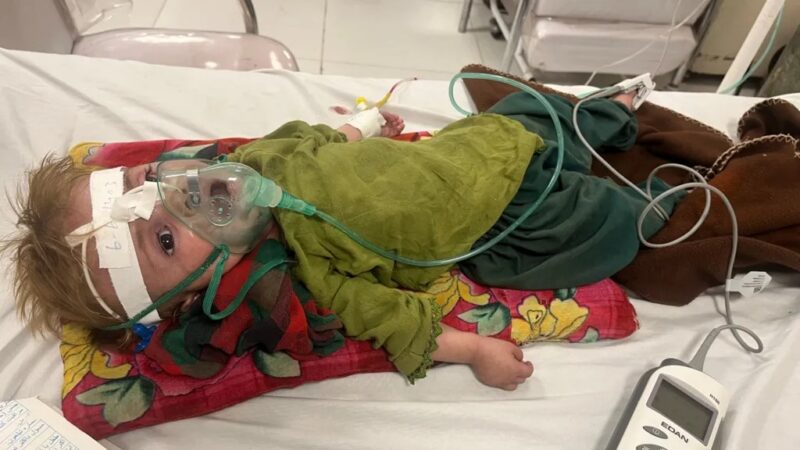BBC ran a story yesterday on the catastrophic food scarcity in Afghanistan where 3.2 million children are suffering from acute malnutrition and over 200 children die every day. The BBC first published the shocking story under the title “Afghanistan: Babies dying as malnutrition unfolds”:
But then sanitized its headline to “The hospital struggling to save its starving babies”:
Clearly, the revised headline will garner less attention as it fails to convey the depths of the crisis, or the difficult but necessary and excellent job the reporters did humanizing the infant victims. Why did editors at BBC undercut their own story, on such a critical topic?
The BBC also fails to note in its article that US and UN sanctions on Afghanistan are making a bad situation worse, and are causing an extra number of horrific wasting deaths of Afghan children.
It is understandable that Afghanistan falling to the Taliban was a setback and humiliation for Washington DC. But was this an embarrassment of such proportions that toddlers ought to now be starved to death so that DC may heal its wounded pride?
Having been bested in a war by shepherds without air support, artillery, or medevac, the wounded DC now heaps misery on their children as what? Revenge?
Excerpt from the BBC:
“Bibi Hajira is one of 3.2 million children with acute malnutrition, which is ravaging the country. It’s a condition that has plagued Afghanistan for decades, triggered by 40 years of war, extreme poverty and a multitude of factors in the three years since the Taliban took over.
But the situation has now reached an unprecedented precipice.
It’s hard for anyone to imagine what 3.2 million looks like, and so the stories from just one small hospital room can serve as an insight into the unfolding disaster.
There are 18 toddlers in seven beds. It’s not a seasonal surge, this is how it is day after day. No cries or gurgles, the unnerving silence in the room is only broken by the high-pitched beeps of a pulse rate monitor.
Most of the children aren’t sedated or wearing oxygen masks. They’re awake but they are far too weak to move or make a sound.
Sharing the bed with Bibi Hajira, wearing a purple tunic, her tiny arm covering her face, is three-year-old Sana. Her mother died while giving birth to her baby sister a few months ago, so her aunt Laila is taking care of her. Laila touches my arm and holds up seven fingers – one for each child she’s lost.
In the adjacent bed is three-year-old Ilham, far too small for his age, skin peeling off his arms, legs and face. Three years ago, his sister died aged two.
It is too painful to even look at one-year-old Asma. She has beautiful hazel eyes and long eyelashes, but they’re wide open, barely blinking as she breathes heavily into an oxygen mask that covers most of her little face.
Dr Sikandar Ghani, who’s standing over her, shakes his head. “I don’t think she will survive,” he says. Asma’s tiny body has gone into septic shock.
Despite the circumstances, up until then there was a stoicism in the room – nurses and mothers going about their work, feeding the children, soothing them. It all stops, a broken look on so many faces.
Asma’s mother Nasiba is weeping. She lifts her veil and leans down to kiss her daughter.
“It feels like the flesh is melting from my body. I can’t bear to see her suffering like this,” she cries. Nasiba has already lost three children. “My husband is a labourer. When he gets work, we eat.”
Dr Ghani tells us Asma could suffer cardiac arrest at any moment. We leave the room. Less than an hour later, she died.
Seven hundred children have died in the past six months at the hospital – more than three a day, the Taliban’s public health department in Nangarhar told us. A staggering number, but there would have been a lot more deaths if this facility had not been kept running by World Bank and Unicef funding.
Over the past three years we have been to more than a dozen health facilities in the country, and seen the situation deteriorating rapidly. During each of our past few visits to hospitals, we’ve witnessed children dying.”
The war is over, why replace it with economic warfare against children?






No comments.
By submitting a comment you grant Free West Media a perpetual license to reproduce your words and name/web site in attribution. Inappropriate and irrelevant comments will be removed at an admin’s discretion. Your email is used for verification purposes only, it will never be shared.